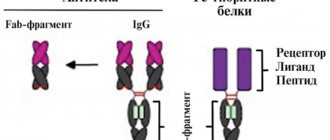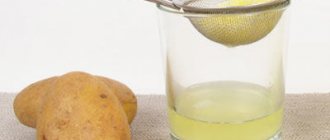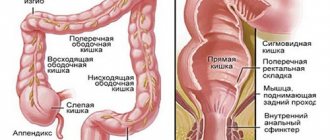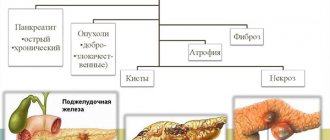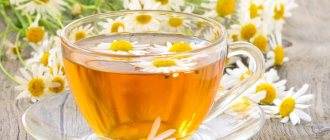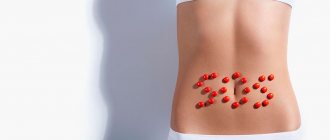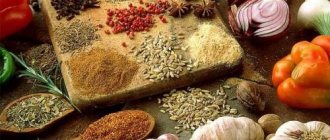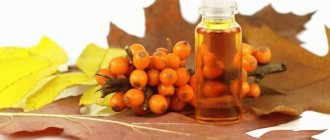Nonspecific ulcerative colitis is a complex disease that can destroy a person’s health and cause a lot of harm. It is often accompanied by bleeding, fever, and pain. This disease is often referred to by the abbreviation UC.
With the active intervention of doctors at the initial stage, the disease can be overcome. The advanced form becomes chronic, its treatment is difficult, and can ultimately be fatal.
The chronic form is dangerous due to alternating exacerbations and remissions. During an exacerbation, the intestinal walls may rupture. Long-term illness sometimes leads to colon cancer. If life-threatening complications begin, surgery is performed. In order not to start the disease, it is necessary to start treatment in a timely manner. Is it possible to treat nonspecific ulcerative colitis with folk remedies? We will discuss it in the article.
Causes of the disease
Ulcerative colitis can be in acute or chronic forms
It is impossible to say for sure why some people develop ulcerative colitis. Doctors were only able to identify a number of directions that lead to such an illness. These are:
- hereditary predisposition;
- infectious diseases;
- disruptions in the immune system;
- psychological aspect;
- harmful effects of the environment;
- gastrointestinal diseases.
The disease progresses in stages. At first, the problems affect only the rectum. Next comes spread throughout the large intestine, with the submucosa and mucous layer being affected. Eventually the surface of the intestine becomes ulcerated. The calmer and more balanced a person is, the less danger there is for him from this disease. Stress and nervousness, on the contrary, complicate the course, so therapy for the disease includes restoring emotional stability.
Features of the disease
To determine adequate treatment, you need to know what form of the disease is and what stage the patient is at. Therapeutic manipulations should be carried out in the direction of restoring the mucosa and submucosa of all parts of the intestine. To do this, use herbs that have an enveloping effect, capable of healing and relieving inflammation.
UC has several stages:
- Spicy. This is the initial stage. When symptoms first occur.
- Chronic.
- Recurrent. Exacerbation replaces periods of normalcy.
UC has several forms:
Herbal medicine in the fight against ulcerative colitis
Herbal medicine is an excellent tool in the fight against ulcerative colitis.
Not always medications can cope with UC. If treatment does not work, you can turn to the gifts of nature to delay surgery. What medicinal herbs can help?
These are plants whose infusions and decoctions have a gentle effect on the affected areas, enveloping them and healing them. Taking decoctions is also useful because taking them allows you to replenish the loss of fluid characteristic of this disease. The list of herbs that have proven themselves in treating this ailment is given below:
- Dried blueberries (berries) are a remedy that prevents putrefactive processes and protects against cancer.
- Strawberry, raspberry, and currant leaves support the liver.
- Nettle decoctions help improve blood clotting, prevent bleeding, relieve inflammation, and rid the body of pus.
- Chamomile relieves inflammation, eliminates spasms, and has an antimicrobial effect.
- Peppermint soothes, balances the emotional state, reduces spasms, and produces an antibacterial effect. This is a remedy for correcting diarrhea.
- Yarrow relieves diarrhea due to the presence of substances that have a bactericidal effect.
- It relieves inflammation, heals affected surfaces, and relieves pain. It has a laxative effect and helps with constipation.
- Cinquefoil has a healing effect and helps fight diarrhea.
- Pomegranate (peel) is considered a reliable remedy for diarrhea. Able to relieve inflammation and destroy harmful microorganisms. Infusions are prepared for administration.
- Celandine has healing, anti-inflammatory properties, destroys pathogenic microflora. It has a beneficial effect on the emotional state, relieves nervous tension and anxiety.
- Wormwood removes all dangerous microorganisms from the intestines.
- St. John's wort improves motility, removes pus, and reduces inflammatory processes in the intestines.
- Knotweed is a good antispasmodic; it also has a healing, anti-inflammatory effect.
- Alder helps in the treatment of ulcers, has astringent properties, so it can stop bleeding.
The herbs listed above are good in infusions and decoctions, either on their own or in combination with each other. You can take them in equal quantities or use one herb in a general collection in greater quantities than others. This will help vary the desired effect.
If the decoction is enriched with glycerin, the beneficial properties of the drug will increase.
Application of traditional methods
The acute form of the disease is most often treated in a medical facility. But chronic colitis can be treated at home. In addition to the medications prescribed by your doctor, it is very important to follow a special diet to prevent further irritation of the colon mucosa by roughage.
In addition, to alleviate your condition and speed up the recovery process, you can treat intestinal colitis with folk remedies. Their peculiarity is that they are effective only as part of complex therapy.
Read also: Acute intestinal obstruction
It is not recommended to use only traditional methods, especially in acute forms of the disease. Be sure to use medications prescribed by your doctor. And traditional methods are auxiliary treatment.
All folk recipes are based on natural ingredients. Therefore, they are safer and less likely to cause side effects. But still, they can only be used with the permission of the attending physician, since improper use of herbs can worsen the patient’s condition. For the same reason, it is necessary to strictly follow the dosage and method of using the folk remedy.
Traditional methods are effective for colitis, but only as part of complex treatment
Another feature of such methods is that they act slowly. Usually the first results are felt after several applications, sometimes even after 2-3 weeks. That is why treatment with traditional methods continues for a long time, and is allowed only as part of complex therapy.
There are many folk recipes for the treatment of colitis. Most often this is the use of medicinal herbs in the form of decoctions or tinctures. Enemas with the addition of oils, rice water or herbs are also effective. It is often recommended to prepare medicines from food. For this, oats, honey, onions, potatoes, apples, and various berries are used. You just need to know which substances help with diarrhea, and which, on the contrary, have a laxative effect.
How to normalize the situation?
Manifestations of nonspecific ulcerative colitis are constipation.
Manifestations of nonspecific ulcerative colitis are diverse. This can include constipation, diarrhea, pain and other unpleasant sensations. The specifics of treatment directly depend on the symptoms that are present at the moment.
If the disease is accompanied by diarrhea, then herbal teas include components that can stop diarrhea. You can take yarrow and chamomile as a basis. A little nettle, rose hips, and St. John's wort are also added there.
An infusion prepared from such a mixture will stop diarrhea, bleeding, reduce inflammation, and help get rid of rot. One spoon should be brewed with a glass of boiling water. The product will cook better if you keep it in a water bath and then let it sit for a while. The best option is to leave it in a thermos overnight. Take it in a glass before meals.
If you suffer from constipation due to colitis, then you need to be treated a little differently. First, we need to restore motor skills. You will need herbs that can stimulate the functioning of the intestines and relieve inflammation. You can mix honey, chamomile, valerian, blueberries, mint, nettle. The preparation proportions are similar: a glass of boiling water per spoon of the mixture. the product is infused in a thermos overnight. Drink a glass before meals.
Fruit
Fruits and berries are “pills without bitterness.” Inflammation in the stomach is a reason to be careful when choosing a fruit and berry diet. The fruits, which are distinguished by their sweetness, contain a lot of fiber, which is beneficial for digestion.
There is a nuance. Soluble fiber heals the exhausted intestines, while insoluble fiber enhances colitis symptoms. It is necessary to thoroughly consult with a doctor if you are drawn to a fruit and berry menu. When exacerbations of colitis rage, you should forget about fruits.
Recommended fruits and berries for illness:
- Pomegranate.
- Banana.
- Apple.
- Sea buckthorn.
Pomegranate is useful for those suffering from digestive pathologies. Intestinal “orderlies” prevent the proliferation of pathogenic bacteria. Pomegranate tincture eliminates diarrhea: the bright fruits have powerful astringent properties. The peel of the miracle fruit contains substances whose characteristics are anti-infectious and anti-inflammatory. This is useful for “worn out” mucous membranes.
There is a method: pour two hundred milliliters of water into fifty grams of pomegranate. Or a twenty-gram “set” of dry peels of a given peeled fruit. The mixture is boiled over low heat for half an hour. Strained.
A regimen that helps treat pathology: half a glass, twice a day, drink a little through a straw. Undiluted pomegranate juice is dangerous for colitis.
Bananas are “loyal” to the intestines. “Sunny fruit” does not irritate the mucous membrane, is easily digested, and contains pectin and anti-inflammatory catecholamines that can cope with constipation.
Apples also have a healing effect on intestinal ailments. When the symptom is diarrhea, the effect of ripe apples and juices containing pulp will be beneficial. If you suffer from constipation, it is preferable to eat baked apples on an empty stomach. “Traditional medicine” advises removing the peel, which is filled with types of fiber that are harmful to colitis.
Sea buckthorn irritates the intestines. In case of colitis, it is ignored. The exception is the oil from these orange berries. The substance helps normalize stool, calms pain, regenerates cells, heals the long-suffering intestinal cavity, and extinguishes the inflammatory “fire.”
Take a teaspoon before meals. An oily enema with this filler is given at the rate of 50 g for an adult, 30 g for a child.
The sea buckthorn remedy is introduced into the intestines slowly. During the procedure, the patient lies on his side; it is not recommended to change position until the morning. When an exacerbation rages, the course of procedures is a month.
Vegetable therapy
The diet against which the treatment of pathology unfolds certainly includes vegetables. “Medicines from the garden” are added to the patient’s menu when constipation becomes more frequent. Super-effective plant fiber activates intestinal motility and speeds up digestion.
The result is cleansing the body of feces. Vegetable dishes are served pureed, mashed, and occasionally boiled.
Vegetables recommended for illness:
- Garlic.
- Beet.
- Potato.
When is beets especially effective? When the tormenting disease is spastic in nature, it is incessantly accompanied by constipation. It is recommended to wipe the vegetable and pour in vegetable oil. And eat a couple of spoons of the dish per day.
Among the recommendations is a salad where garlic complements beets. The component is hot, but in tiny doses it is beneficial for the intestines. Leaves and sharp cloves improve digestion and have a timely antispasmodic effect in cases of colic and flatulence.
If your doctor advises you to include potatoes in your diet, the decision will be correct. It contains a lot of minerals, vitamins, starch, and soluble fiber necessary to facilitate the functioning of the intestinal mucosa.
Puree will be useful. And drinking potato juice in two-week courses can reduce digestive pathologies.
Treatment options
We begin the treatment of acute colitis with a cup of green tea.
Treatment begins with simple green tea. You just need to brew it stronger. Its antimicrobial properties can eliminate negative factors in a short time. Just buy not bags, but normal loose-leaf tea.
You can alternate taking tea with taking chamomile decoction. He must also be strong. 4 tablespoons are poured into a glass of boiling water. This mixture is kept in a water bath for about 20 minutes. When the broth is strained, drink half a glass after meals.
Organo-mineral product
Is mummy used for intestinal ailments? Yes. The product has antibacterial and anti-inflammatory properties. The resin-like substance is revered as miraculous. For nonspecific (and other ulcerative types of the disease), this example of “natural alchemy”, according to recommendations, is used in several ways.
A glass of warm water is poured. Half a gram of the product dissolves there. Everything is drunk. Next, wash it down with water, where honey is dissolved (a teaspoon of “bee delicacy” per glass is enough).
The procedure is organized before bedtime. Four ten-day courses are required, and a five-day break between courses is necessary.
Another method is this: administer mumiyo rectally when the colitis is acute. A one percent solution of “mountain resin” is prepared. Twice a day (after defecation) inject 30 ml of medication into the rectum. Ten procedures are enough. After the enema, lie on your stomach.
There are effective tips for combining approaches. Mumiyo is mixed with water. Ratio: 0.1 g of ingredient per tablespoon of liquid. The daily dosage is 0.2 g.
The regimen for each dose is 10 ml of solution (with a one percent concentration) orally. The remaining daily dose (0.1 g) is introduced into the body using rectal suppositories.
Fighting relapses
The knotweed will help in the fight against relapses.
The speedy normalization of the situation will be facilitated by the healing of ulcers and improved blood circulation in this area. To prevent increased bleeding, you need to take herbs that increase blood clotting.
These are the knotweed, the damselfish, the nettle, and St. John's wort. It is better to take them not separately, but to include them in healing cathedrals. It is advisable to use local treatment methods, for example, enemas with sea buckthorn oil. This is an excellent healing agent.
Enemas are done lying down late in the evening before bed. The volume of injected oil is 50 ml. For the procedure, take a small pear. After waking up, you need to drink 1 - 2 tablespoons of the same oil.
Bee help
Among the methods that can be anticolitis are “beekeeping products.” Ordinary honey is used in health-improving mixtures. The situation is similar with propolis. For an inflamed colon, it is recommended to take a daily eight-gram dose of this sticky substance on an empty stomach per month.
What other recipe exists? Honey is immersed in water at a temperature of 15-25 degrees. The daily norm is 100 g. Divide the “hundred” into three doses.
To protect against heartburn, it is advisable to take half a spoon (teaspoon) of baking soda dissolved in water (half a glass) before treatment.
Or another medicinal method. Take honey (180 g), fifty grams of pollen, cold water (800 ml is enough). Dissolve the “bee products” in the liquid. Add pollen slowly, stirring continuously. Let the mixture sit for two days. Dose: half a glass before meals. Duration – month.
It is permissible to dilute a twenty percent propolis solution in seventy percent ethyl alcohol. Use - three times a day. Plop forty drops into a glass of water (warm). Or you can use milk. An hour before meals. The duration of the course is 20 days – a month.
Homeopathy remedies
Often. Trying to get rid of pathology, people try different methods. Homeopathy is one of them. Only self-medication is unacceptable here. We need a qualified homeopathic doctor.
A professional will never approach a task lightly. In order for his treatment not to harm, he must know everything about the patient. Therefore, a banal survey at an appointment can take several hours. The prescribed course of treatment may include medicinal plants, acupuncture, and massage.
